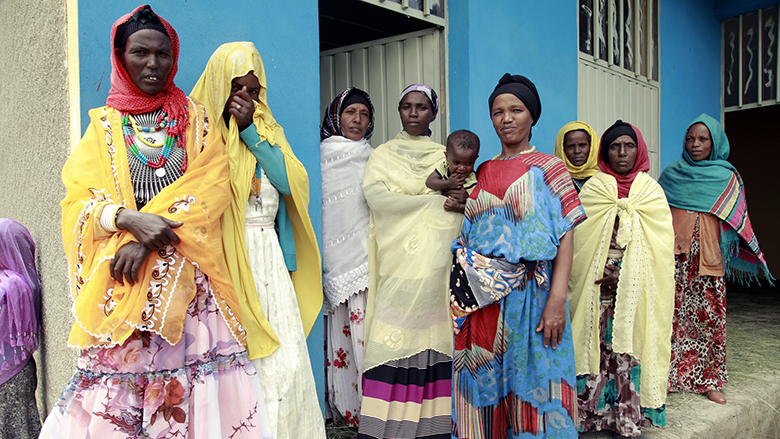The Jobs Diagnostics and Solutions Core Course provides a comprehensive training on conducting a Jobs Diagnostics (JD) through theoretical and empirical techniques. The week-long training explores concepts such as country benchmarking, guided enquiry to identify symptoms in the data and inferring the likely cause of jobs problems. Hands on demo sessions on macro, demography, structural change and policy context tools aid in understanding the jobs problem and developing a jobs strategy. Participants also learn about key components of a Jobs strategy based on real country cases and analyze specific job problems including addressing labor market duality and informality, strengthening agriculture value chains, establishing export processing zones, developing effective entrepreneurship programs, providing technical and vocational training programs, and strengthening labor market institutions.
The Jobs Diagnostics and Solutions Core Course was held concurrently with a similar Core Courses on Jobs, Labor and Migration, Social Safety Nets and Delivery and Pensions.
Day 1 – Monday, Nov 4
1. Setting the Stage: So, You Want to Give Policy Advice to Improve Jobs Outcomes? | Ian Walker [Presentation]
2. Conceptual framework: Jobs and Economic Transformation, Pathways and Transitions, and the Jobs Diagnostic Approach. | Dino Merotto [Presentation]
3. Country Types – the Importance of Context for Strategies and Benchmarking. | Dino Merotto [Presentation]
4. Guided Enquiry – Identifying Symptoms in the Data (includes hands-on session). | Dino Merotto [Presentation]
5. DEMO and Hands-On Exercises: Macro Tools; Demography Tool, Structural Change Tool, and Policy Context Tool. | Hild Rygnestad [Presentation]
Day 2 – Tuesday, Nov 5
1. Supply Side Analysis, Labor and Human Capital / Skills. | Michael Weber, Jorg Langbein [Presentation]
2. Labor Demand: Conceptual Framework and Guided Enquiry, Including Firm Level Analysis of Productivity and Employment. | Dino Merotto, Reyes Aterido [Presentation]
3. Inferring Causes – Triangulating to Identify the Likely Cause of a Key Jobs Problem. | Dino Merotto [Presentation]
4. Labor Market Models and Simulation, SimPLE. | Michael Weber [Presentation]
Day 3 – Wednesday, Nov 6
1. Assessing Market and Policy Failures – Introducing Public Choice theories. | Dino Merotto [Presentation]
2. Addressing Jobs Externalities in Dualistic Economies. | Ian Walker [Presentation]
3. The future of Work. | Federica Saliola [Presentation]
4. From Jobs Problems to Jobs Strategies - Uganda, Kazakhstan, Cambodia. | Dino Merotto [Presentation] | Thomas Farole [Presentation] | Wendy Cunningham [Presentation]
Day 4 – Thursday, Nov 7
1. Special Economic Zones and Industrial Parks. | Thomas Farole [Presentation]
2. Agriculture Value Chains (based on productive alliances models). | Alexandra Christina Horst [Presentation]
3. Tax and Benefit Reforms to Make Formal Work Pay. | Michael Weber [Presentation]
4. Upgrading Apprenticeship Systems. | Patrick Premand [Presentation]
5. Reforming Skills & Vocational Training Programs. | Alexandria Valerio [Presentation]
Day 5- Friday, Nov 8
1. Capacity Building Programs in Entrepreneurship. | Johanne Buba [Presentation]
2. Solutions for Women - Childcare and Flexible Work Arrangements. | Apichoke Kotikula [Presentation]
3. Urban Development and Jobs. | Ayah Mahgoub, Somik Lall [Presentation]
